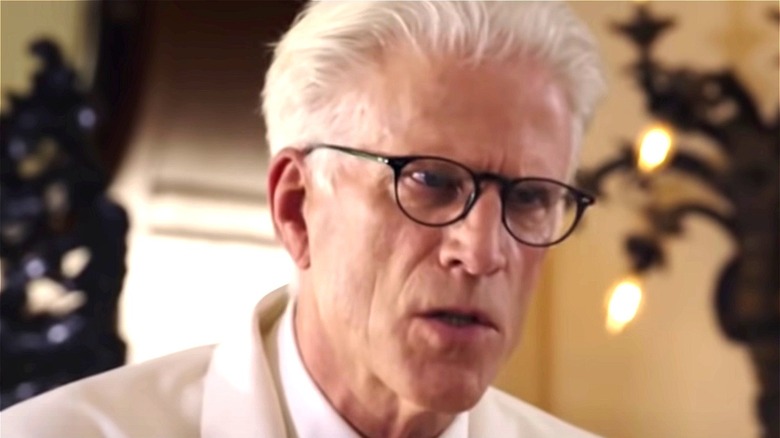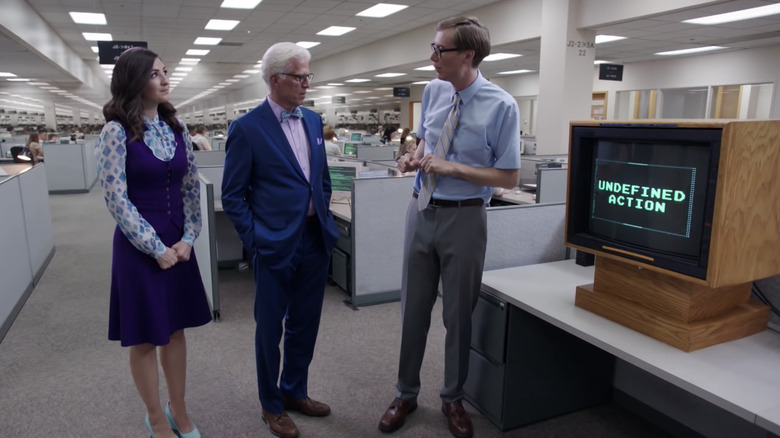The Surprising Real-Life Inspiration For The Good Place
Although "The Good Place" was not as long-running as some of Michael Schur's other projects like "The Office" or "Parks and Recreation," it still remains one of the most critically acclaimed comedy series of the 2010s — two of its seasons even currently sitting at rare 100% on Rotten Tomatoes — due in no small part to its incredibly unique premise. The series begins with Eleanor Shellstrop (Kristen Bell) arriving at the titular "Good Place" and finding out she is dead. An angelic figure known as Michael (Ted Danson) quickly informs her that in the afterlife, everybody is sent to either the Good Place or the Bad Place, based on a set number of points that those people earned while they were alive.
Eleanor (who is about as unethical as one could imagine when the series first begins) soon realizes that she was apparently sent to the Good Place due to some clerical error, and much of the series is focused on her learning to be a better person so as not to blow her cover. There are plenty of twists and turns throughout the show as the story unfolds, though this system of "the Good Place and the Bad Place" and having one's morality represented by a numerical score is always a major component of the plot. As it happens, this "morality score" was actually inspired by a similar point system that series creator Michael Schur used to judge people he saw around LA.
Schur says he used to assign point values to annoying people he saw while driving
During a 2018 interview with Marketplace, Schur revealed that he was inspired to create the show after witnessing "annoying behavior" while driving around LA and assigning those people different point values based on how annoying they were. He'd see things like "people cutting you off in traffic, and people throwing things on the ground and not picking up after themselves," Schur explained. "And I had this game I played with myself where I would just say, 'that's negative eight points.' Like if anyone was keeping score, what you did right there ... you just lost eight points."
Schur said this silly little game ended up inspiring him to create "The Good Place," based on a world where every action does have an actual point value and directly impacts where you end up in the afterlife. Eventually, he came up with the idea of a woman who has a very low point score ending up in the Good Place, which led to the creation of the show. Considering just how well-received "The Good Place" was during its four-season run on NBC, it's incredible to think the entire show might only exist because Schur was getting annoyed at people in traffic.

